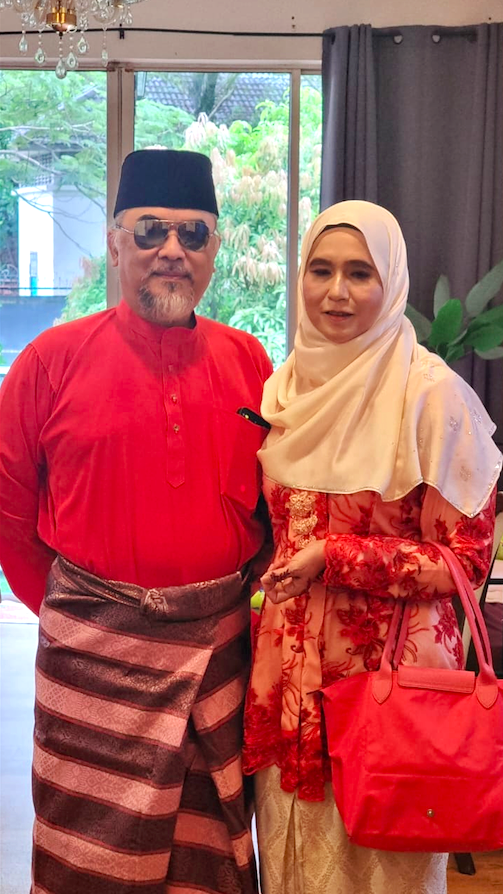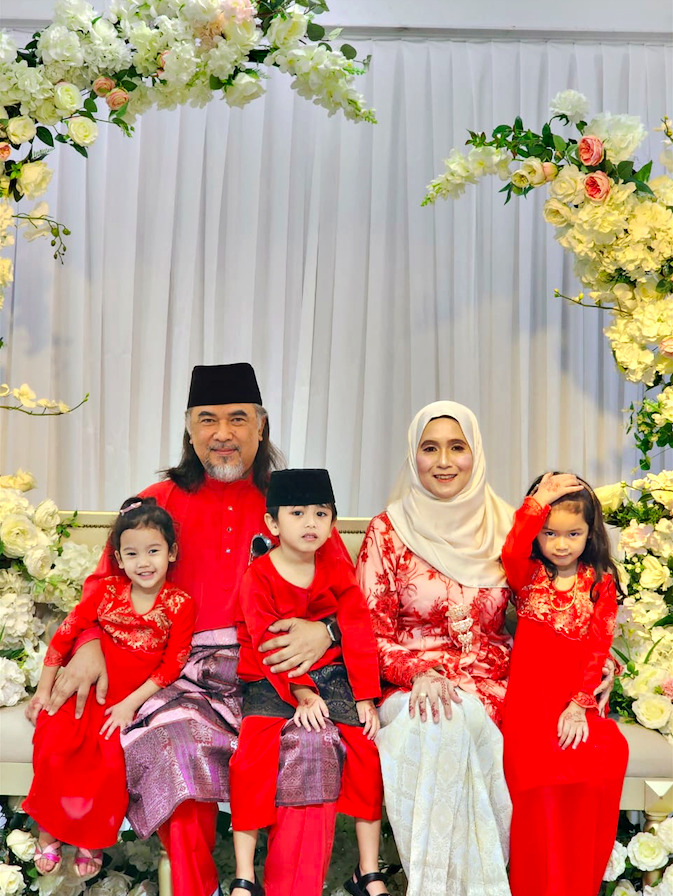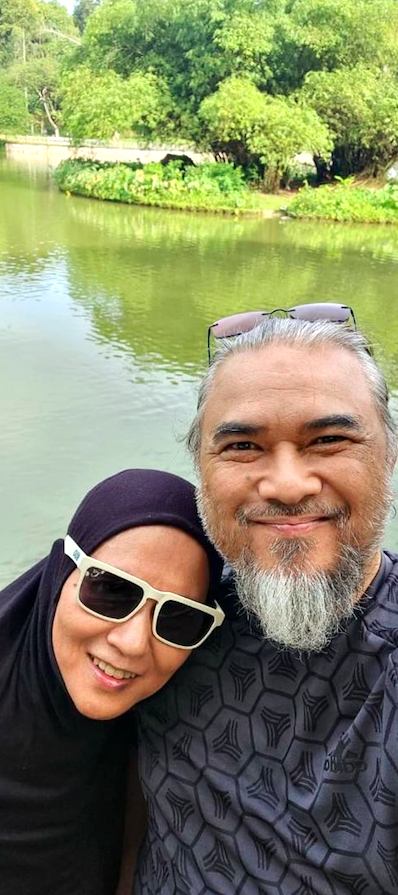The adventurous couple reveal that they keep their love alive by “sharing and doing everything together”. Photo: Nor Wahidah Wari
Jalaludin Shukor, 59, and Nor Wahidah Wari, 58, have been married for 36 years. The couple from Kuala Lumpur have five grown-up children and three young grandchildren.
Yet, they seem like newlyweds, always holding hands and going everywhere together.
The adventurous couple reveal that they keep their love alive by “sharing and doing everything together”.
They enjoy activities such as biking, walking and going for coffee.
“Sometimes, there are things that I like but she doesn’t, but she’s willing to learn about my interests and accompany me. And sometimes, there are things that she likes which I don’t, but I still accompany her.
“For example, she likes to wake up early in the morning for walks but I need my sleep. However, because she loves this activity, I’m willing to wake up early to accompany her,” says Jalaludin.
The couple first met through a mutual friend when they all went to watch a movie and had a meal together. At that time, Nor Wahidah was working as a receptionist, while Jalaludin was working at a bank.
“We didn’t have social media, and there was no WhatsApp or Facebook then,” says Nor Wahidah.
“I would write love letters to him daily and send them to him once a week by post. I used pretty stationery for this and even sprayed perfume on it. And then I put on my lipstick and the letter would literally be ‘sealed with a kiss’.”
After six months, they were engaged, and one-and-a-half years later, they got married.
What love means
For Jalaludin, love is “accepting each other’s strengths and weaknesses”.
“It’s not just about living together until death, but it’s also about making sure the love sparks and grows,” he says.
“We go through good and bad times. Sometimes, we fight and we don’t always agree with each other, but we agree to disagree,” the couple concurs.
They lived in Abu Dhabi for 16 years – where Jalaludin was working and Nor Wahidah was a housewife – but had to return to Malaysia in 2021 when the pandemic hit.
“We had a really difficult time with work and business when we came back to KL,” says Jalaludin.
“So it was time for me to support my husband in any way that I could,” says Nor Wahidah.
The couple is now providing a courier service to support e-commerce providers.
For Nor Wahidah who is visually-impaired, love is “supporting each other in both good and bad times”.
She reveals that her vision is “only 15%” and has deteriorated due to a genetic condition".
“After my third child, I started losing my vision gradually and doctor said I would be blind in five years,” she says.
“But I’m very fortunate because my husband is my backbone.
“He’s very supportive of me, in all that I do ... like now, I can still cook and I know where all my things are. But for tasks such as cutting the chicken, my husband helps me,” she adds.
“When I started losing my sight, I didn’t want to go out because I felt embarrassed as my husband had to help me. And I didn’t want to inconvenience anyone. But he wasn’t ashamed and would still bring me out regardless,” says Nor Wahidah.
“That’s because I don’t see her as disabled and in my eyes, she’s perfect. Not being able to see doesn’t make any difference to me because she’s still her,” adds Jalaludin.
Modern love
Love is very different now for the modern generation, the couple concurs.
Generation Z couples can easily contact each other because of mobile phones, WhatsApp and video calls. But during our time, we had to be very disciplined. We couldn’t see each other nor communicate often. We only dated twice a week, they recall.
“And I had to make sure she was home by 10pm,” says Jalaludin.
Their advice to young couples is not to be materialistic, but instead, support each other.
“Don’t rush into a relationship but take time to get to know your partner because this is someone you'll want to spend a lifetime with.
“Don’t choose someone for superficial reasons as you’ll get bored after awhile,” advises Jalaludin.
“When you’re in love, everything looks rosy. But you’ve to make sure you open your eyes to your partner’s character.”
It’s also important to be honest and communicate where finances are concerned, he says.
"Some women will say, what they earn is theirs, but the man still has to provide everything for them and the home. But in my wife’s case, when she was working, we both contributed our income to buy what we needed for our home," he adds.
“Also, if we make mistakes, we’ve to be mature enough to admit it, change and make it right.”
Nor Wahidah adds: “Always show your affection and touch and hug each other every day. When I’m in the kitchen, my husband will often hug me from behind. Also when our kids were small, at least once a month, we’d let our parents take care of them so that we could have our time together as a couple."
And, we still hold hands everywhere we go, and it’s not because of her visual impairment,” concludes Jalaludin.











